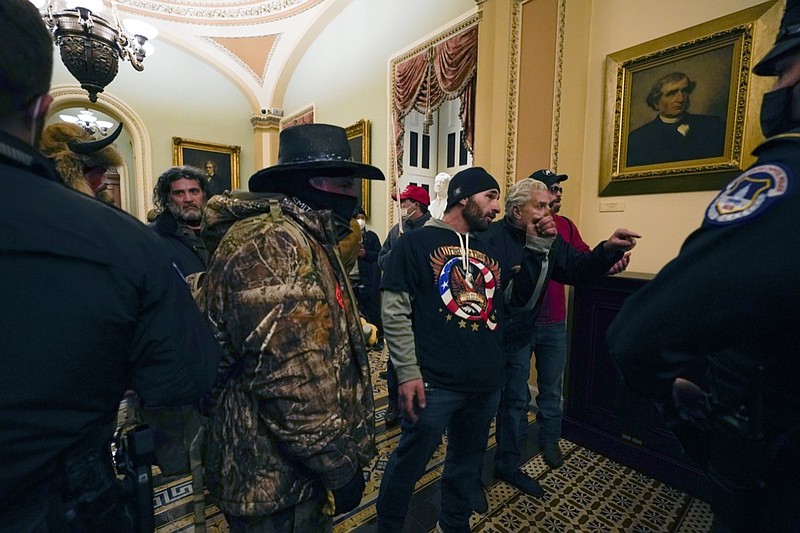It was unthinkable that Americans would storm the Capitol a year ago Thursday with the intention of doing harm to members of Congress and overturning a lawful election. Yet it happened.
Our nation must ask honestly and openly why this happened and what needs to happen to unite this nation around an understanding of the common good.
That afternoon of violence on the steps and within the halls of Congress should have taught us that we can't take our democracy for granted. And that is why the prosecutions of Jan. 6 rioters and the House Select Committee's investigation into that event are so important to understanding the hateful, intolerant and authoritarian strains infecting our national discourse.
There are many questions to be answered: Why then-President Donald Trump didn't intervene sooner; why GOP lawmakers who denounced the attack in real time now deny the seriousness of the assault. And most of all we need to hold to account elected officials and others who encouraged an attempted insurrection.
These uncomfortable questions speak to a venomous national dialogue that now normalizes misinformation, hate, illiberalism and nationalism, and amplifies those messages through social media.
Thirty-four percent of Americans think violent action against the government is sometimes justified, according to a new poll from The Washington Post and the University of Maryland, a percentage that is considerably higher than in past polls.
A separate CBS News-YouGov poll noted that 62% of Americans said they expect violence over losing in future presidential elections and that only 38% said they expect the losing side will concede peacefully.
Is this what we have become, a nation that is willing to settle political disagreements through violence and the demonization of fellow Americans? If it is, then we proceed at our existential peril.
No nation has remained perpetually united, a truth that until now most Americans have rejected as a possibility in our future. The genius of this country is that we have repeatedly resisted corrosive forces that could tear us apart and embraced the principles of responsible governance, no matter how imperfect, that embody the spirit of E pluribus unum, the nation's motto since 1782.
In his book "The Untied States of America: Polarization, Fracturing, and our Future," futurist Juan Enriquez concludes that it is a miracle that the United States has held together for as long as it has, noting that "we have paid little attention to how many countries split and disappear because our own hemisphere has been remarkably stable." Britain and Spain once had great naval fleets, he writes. Latin is a dead language. The pound was once a leading currency. The euro didn't exist. Nations have been partitioned and repartitioned. Most of the countries in the United Nations weren't there 50 years ago.
America is experiencing ideological, religious, political and economic fractures that test basic beliefs in uncharted ways. We share common values, or so we wish to believe, but also have allowed conspiracy theories, unvarnished exercise of power and selective interpretations of selective facts, or in the absence of facts, fantasies and lies, to define and divide us.
If we believe America is an exceptional nation, then we must also believe in peaceful resolutions of political disputes, the peaceful transfer of power and the enduring importance of constitutional norms and institutions. What we can't abide is a medieval storming of the castle and capitulation to the darkest and worst instincts.
The Dallas Morning News
